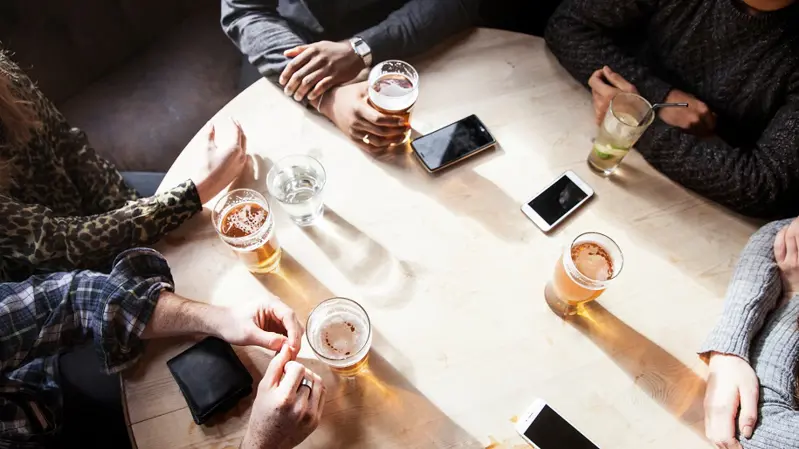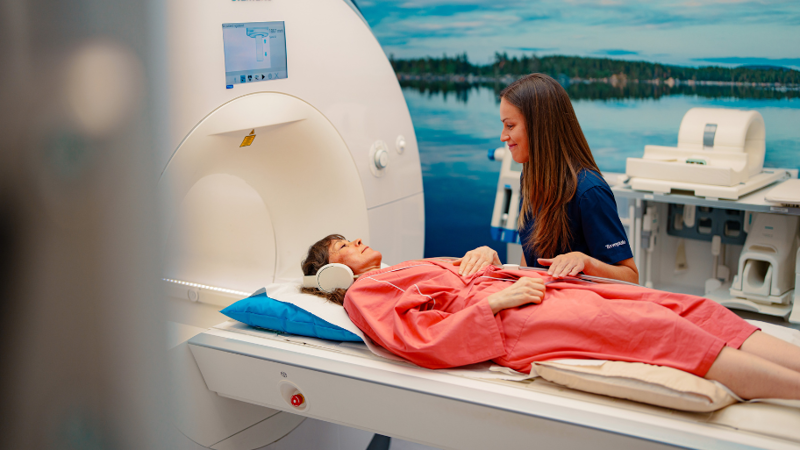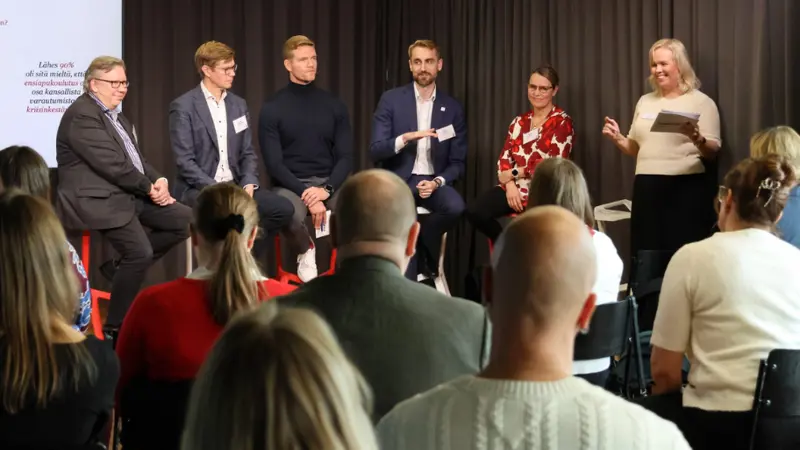Organization culture can contribute to substance abuse problems
The use of substances is not a new phenomenon, as throughout the ages people have been intrigued by changing everyday reality with various chemical substances. Majority of the working-age population uses intoxicants, but mainly for controlled and moderate recreational use, which does not cause significant problems. On the other hand, certain factors in working life also increase the risk of substance abuse. In this case, the organization culture is important: does the culture support recovery with non-intoxicating means and encourages sensitive handling of deviations, or does it perhaps feed possible substance abuse problems.

The risks of using substances are partly related to a hereditary predisposition, but the work environment can also increase the risks. Irregular working hours or work that requires travel is one of the risk factors in the work environment. Also in some cases the workload as a whole can be perceived as too high and intoxicants are then used to manage stress. Hard work - hard play is an established provebr, but "play" heavily fuelled with intoxicants does not offer recovery.
– In reality, intoxicants lower recovery and sleep quality, increase anxiety and depression, which in turn worsens work stress. Every leader should think about how the culture of their own organization guides recovery and de-stressing. Is it customary in the work community to balance everyday stress with afterwork and on Fridays to reset the work week with a intoxicant-saturated evening out, or does the organization culture support drug-free recovery methods, such as adequate night sleep and exercise, asks Terveystalo's occupational health doctor Matti Palomäki.
During the festive season, workplaces also often offer work-related events that expose to the use of intoxicants. Especially after such a longer period of avoiding gatherings, we embrace and need opportunities to meet coworkers in an informal setting, in which the party drinks quite often contain alcohol.
– As long as the limits of safe alcohol use are not exceeded, alcohol being a legal intoxicant and consumed in moderation, can indeed in accordance with its nickname, be a joy juice that creates a relaxed atmosphere. In addition, it would be good to always have a non-alcoholic option naturally available at workplace parties, and it should be part of the organization's culture that there is no pressure to use intoxicants. In an ideal situation, everyone is also aware of their own organization's substance abuse program, and possible excesses are dared to be dealt with sensitively, says Palomäki.
Supervisors have a responsible duty to raise suspicions of substance abuse. This is often difficult, which is why Terveystalo has developed a checklist to support supervisors. The list contains signals that can be noticed in a person struggling with substance abuse problems. With the help of the checklist, it is possible for the supervisor to make an overall assessment of the situation and take action.
– Sometimes the substance abuse problem can be overlooked for too long. Especially if the culture includes treating excesses as a joke and hiding work performance among co-workers for fear of being caught, so to speak. This is a disservice to the person with a substance abuse problem, because the sooner the matter is addressed, the less likely the problem will cause destruction to the individual and the work community. In this case, trust is emphasized in the culture - you have to dare to raise the matter as soon as the concern arises, says Palomäki.
Download the free checklist here
Please note that the early signals in the checklist can also indicate other health deterioration or stress related to work or leisure time. Although it is not necessarily a question of problematic use of substances, the list nevertheless gives certainty to talk with the employee about what the signals can tell.
Laters articles

Terveystalo's digital services have been awarded the internationally recognized ISO27001 information security certification.
Terveystalo's information security practices, processes, and risk management are in line with international best practices.

Does massage help relieve stress? – Touch restores and calms the body and mind
Stress is not always visible on the outside, but the body does show signs when the strain increases. According to Lassi Ylönen, a trained massage therapist at Terveystalo Rela, the body often communicates stress through subtle signs.

Circular economy and artificial intelligence boost performance and improve care
At the heart of sustainable healthcare, technology serves as a tool for improving both the quality of care and accountability. Terveystalo favors solutions that combine sustainability, cost-effectiveness, and medical expertise.

Psychologist: How to make Christmas a relaxed and personal celebration
For many, the anticipation of Christmas begins when cities are decked out in seasonal lights and the first chocolates, calendars, and gingerbread cookies appear on store shelves. Christmas carols ring out and the Tonttuparaati choir sings “Kiire jo on! Kiire jo on!” (Hurry up! Hurry up!). This warm and atmospheric celebration also brings other feelings to mind: how on earth can we get through all this without losing our joy and peace in the rush?

Terveystalo and Gosta Labs deepen their cooperation: the goal is to streamline work with a superior patient information system
Terveystalo is deepening its cooperation with Finnish health technology company Gosta Labs and investing €1 million in the company as a minority investor. The aim is to jointly develop artificial intelligence solutions that improve the quality of care and the efficiency of reception work as part of Terveystalo's new patient information system, Terveystalo Ella.

First aid preparedness in companies requires action and courage
First aid skills increase resilience, but a barometer survey of Finnish organizations' first aid capabilities published in October reveals that the number of trained personnel is alarmingly low.